Chinook RVs are ideal vehicles for camping or road trips. But like any vehicle, they can suffer from common problems that need to be addressed in order to keep them running smoothly. In this article, we’ll cover some of the most common issues and provide helpful solutions for addressing them.
Table of Contents
Vibrating sound from the generator
One of the most common issues experienced with Chinook RVs is a vibrating sound coming from the generator. This can be caused by worn engine mounts, loose belts, or a failing alternator. To fix this problem, you should first check all belt tensioners and replace any that are worn. Then inspect the engine mounts for signs of wear or damage, and replace any that need it. Lastly, have the alternator checked for any signs of failure. If all else fails, you may need to replace it entirely. [1]
Dribbling of the freshwater tank
Dribbling of the freshwater tank is a common problem with older Chinook RVs. The water pump can be at fault, so it’s important to check that first. If the pump is functioning correctly and the lines are clear, chances are there may be an issue with the system’s valves or seals. To check these parts, inspect the valves for any cracks or damage and replace them if necessary. If there are no visible signs of wear, then you may need to check the seals and install a new one if needed.
If none of these steps resolve your issue, it could be due to a malfunctioning tank sensor. In this case, it’s best to have your RV serviced by a professional who can assess the problem and advise on the best solution. [1]
Small Interior
Small interior leaks are a common problem for Chinook RVs. These can be caused by water entering through cracks in the walls, around vents, or from plumbing fixtures. It’s important to identify and fix these leaks quickly before they cause more serious damage.
To check for an interior leak, start by inspecting the walls and ceiling for any visible signs of water. If you see damp spots, use a flashlight to look for any cracks or holes where the water could be entering. You may also want to check around plumbing fixtures such as faucets and showerheads to make sure they are not leaking. [1]
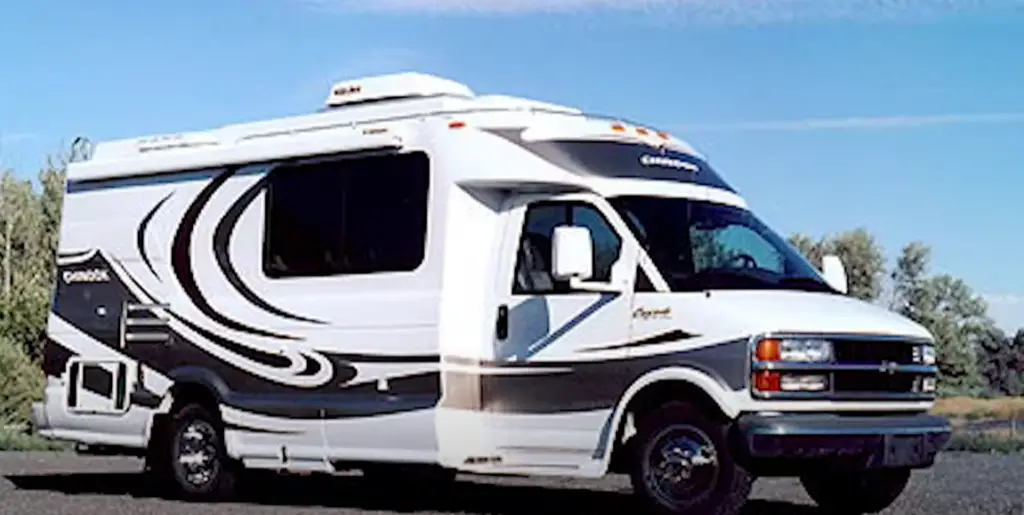
Battery Problems
Battery problems are a common issue with Chinook RVs. You’ll want to make sure you check your RV’s battery regularly for corrosion, loose or damaged wires, or any other issues that could be affecting its performance. If you find an issue, it’s important to get it fixed as soon as possible before it becomes a bigger problem.
Finally, make sure you check the water level in the batteries every few months to ensure they are functioning properly. If the level is too low, you can add distilled water to bring it up to the correct level. [1]
Cup holder problems
One of the common problems encountered with Chinook RV’s is cup holder related issues. The cup holders are designed to be adjustable and will often become loose over time due to frequent use. To tighten your cup holders, try using a rubber mallet or other tools to gently push the holder back into place. If that doesn’t work, you can purchase replacement holders from your local RV dealer or online. Additionally, if you find that the cup holder is not deep enough to accommodate larger drinks, you may need to adjust the angle of the cup holder by loosening and tightening the screws on either side.
If you are having problems with beverages spilling out of the cup holder because it is not securely attached to the surface, try using adhesive strips or foam padding around the bottom of the cup holder. This will help keep your beverages in place and prevent them from spilling out.
Finally, if you find that your cup holders are becoming discolored or sticky over time due to spilled drinks, you can use a mild cleaning solution (such as dish detergent and water) to clean them. Be sure to dry them thoroughly after cleaning so that the cup holders do not become sticky again. [1]
Water Lines/Water Pump Issues
One of the most common Chinook RV problems is related to water lines and the water pump. Water pumps can wear out over time, especially if they are used often. This can cause them to leak or even stop working altogether. In addition, it’s important to check your water lines regularly for any signs of corrosion, leaking, or other damages. If you find any of these issues, they should be repaired or replaced as soon as possible to avoid further damage.
Other common water-related Chinook RV problems include frozen water lines in cold weather, sediment buildup in the tanks, and low pressure when running a shower or faucet. To prevent your lines from freezing, try to insulate them as much as possible. You can also flush out your tank periodically to get rid of any sediment buildup, and make sure the water pump is running efficiently for maximum pressure. [1]
Toilet Issues
Toilet issues are perhaps the most common problem associated with Chinook recreation vehicles. If you’re having trouble with your RV’s toilet, here are a few tips and tricks to help get it working again:
- First of all, make sure you have enough water in the holding tank to flush properly.
- You should also make sure the tank’s level isn’t too low, which can cause a backup.
- If your toilet is still not flushing properly, check to see if you need to add more water to the water jet for better pressure.
- It might be necessary to empty and clean out any clogs in your RV’s plumbing lines.
- If you’re still having trouble, it could be a sign that your toilet needs to be replaced or serviced. [1]
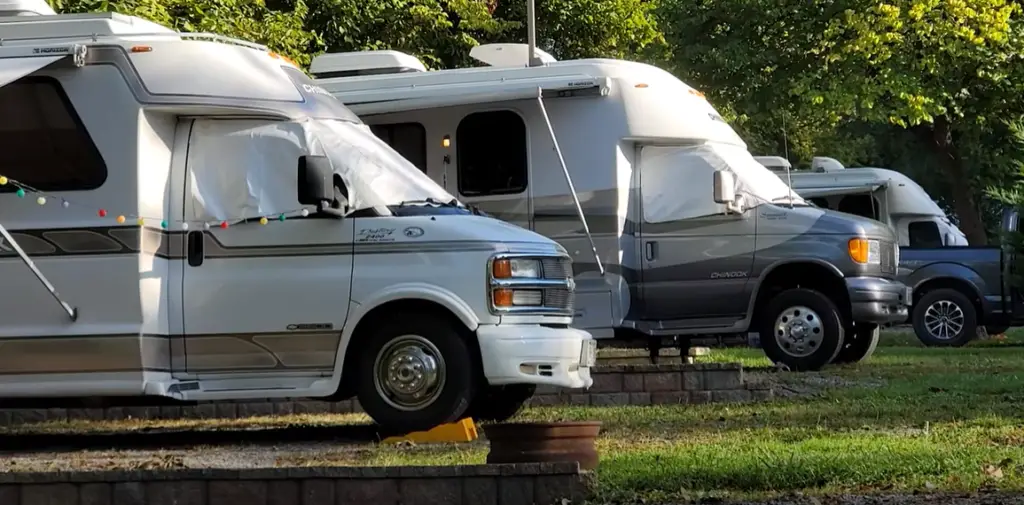
Tire Issues
One of the most common Chinook RV problems is tire issues. If your tires start to show signs of wear and tear, it’s important to replace them as soon as possible before they fail while you are on the road. Also make sure to check your tire pressure regularly, as incorrect pressures can cause premature wear. Finally, ensure that all tire valves are securely fastened and that your wheel nuts are properly tightened. [1]
Roof And Window Issues
One of the most common issues with Chinook RVs is roof and window leaks. You may notice a dampness in the air, water spots or stains on your ceiling, walls, or other surfaces. In addition to waterproofing, it is recommended that you inspect the integrity of your RV’s roof and seals around each window. If you’re not sure how to check for issues or if you don’t feel comfortable inspecting your roof and windows yourself, it is best to have a professional take a look.
You may also want to inspect the seals around each window for any signs of damage or deterioration. Seals can weaken over time and need to be replaced so that air doesn’t escape your RV and cause leaks. [1]
Leaks
Leaks are one of the most common Chinook RV problems. Water leaks can cause a lot of damage to your vehicle, so it’s important to inspect your RV regularly for any signs of water entry. The most common culprits when it comes to water leaks are windows, roof seals and plumbing fittings. If you do notice an area that may be leaking, it’s best to get it fixed immediately.
When inspecting your RV for leaks, make sure you check the seals around windows and doors, as well as any other areas in the roof or walls. You should also inspect plumbing fixtures such as showers and sinks for any signs of damage or deterioration. If you find a leak, it’s important to repair it immediately before the problem gets worse. [1]
Electrical problems
One of the most common problems faced by Chinook RV owners is electrical issues. Before attempting to troubleshoot any electrical issue, make sure that you disconnect all sources of power and consult a professional if necessary. Some common signs of electrical problems include dimming lights, flickering interior lights, or dead outlets. If you are having difficulty with one of these issues, you may need to replace a fuse or circuit breaker. In some cases, rewiring the RV might be necessary if the wiring has become damaged due to age or wear and tear. Additionally, it is important to check the battery cables and connections for corrosion or rust as this can create electrical problems in your Chinook RV. [1]
Foul smell
RV owners may experience a foul smell coming from their vehicles. This could be due to a variety of causes, including: mold or mildew growth, food residue, pet odors, or leaking water into the interior.
If the smell persists after using these products, you may need to check your ventilation system or air-conditioning unit. It’s also possible that the smell is coming from an old water tank or sewage system. If this is the case, it’s best to get a professional to inspect and repair any leaks or clogs in these areas. [1]
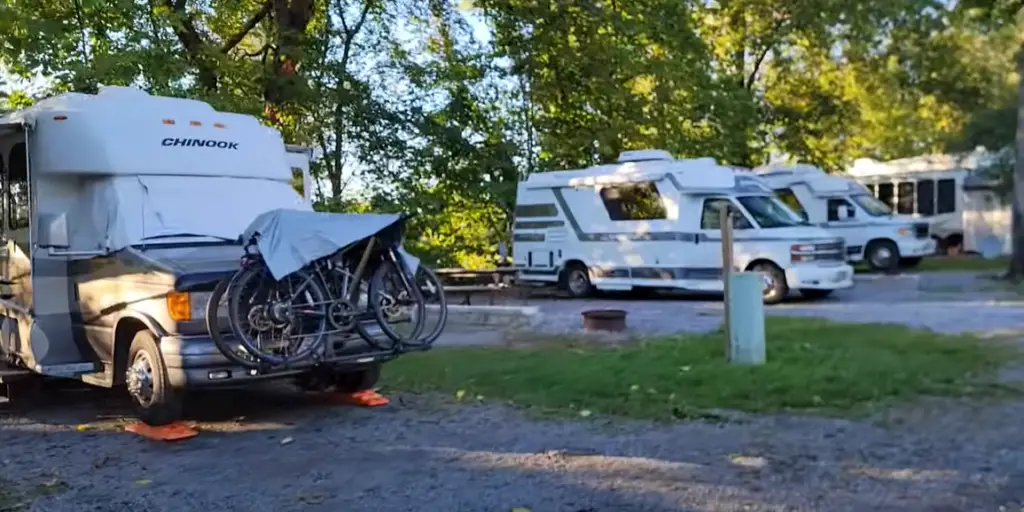
Stability Issues
RV stability is a common issue. If you’re finding that your Chinook RV isn’t as stable as it should be, there are a few things you can try to help improve the situation.
One of the most important tips for improving RV stability is keeping your weight distribution balanced between all wheels and axles. It’s also important to check your RV’s suspension system and adjust it if necessary. You should also make sure that all of the tires are properly inflated. [1]
FAQ
Are Chinook motorhomes still made?
Yes, Chinook motorhomes are still being made by the original manufacturer in Washington state. The company has been around since the 1960s making high-quality recreational vehicles.
What are the disadvantages of a Class A motorhome?
Class A motorhomes can be more expensive than some other types of recreational vehicles. They tend to require more maintenance and repairs, as well as higher costs for insurance, fuel, and storage. Additionally, they may not fit in all campsites or parking lots due to their larger size.
Where are Chinook motorhomes made?
Chinook motorhomes are made in Washington state, where the company has been based since its founding in the 1960s. All production and assembly take place at the main manufacturing facility located there.
Who makes high-quality motorhomes?
Chinook motorhomes are recognized for their quality and durability. The company has been making motorhomes since the 1960s, using high-grade materials and components in their construction. Their vehicles have earned a reputation as reliable and dependable recreational options.
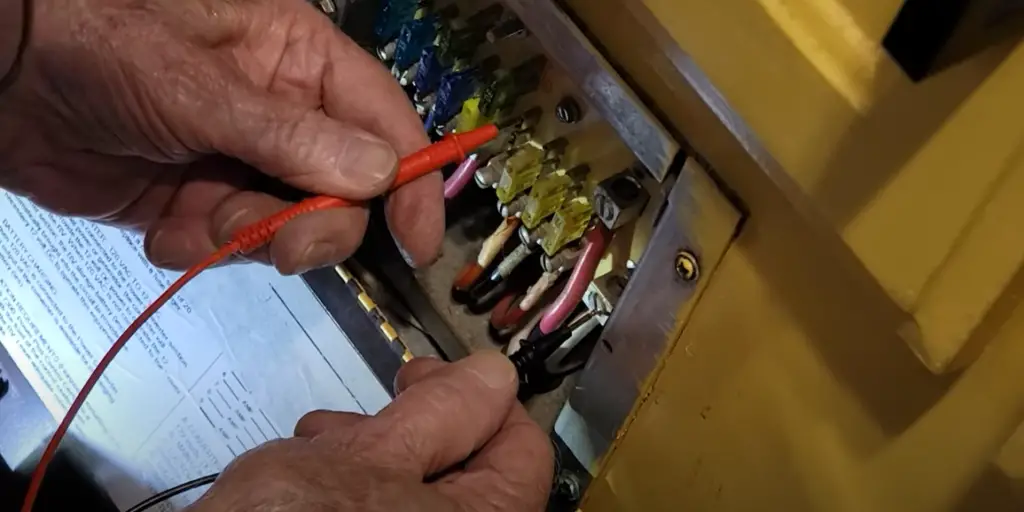
How much does a new Chinook camper cost?
The cost of a new Chinook motorhome depends on the model and features chosen. Prices start at around $80,000 but can go up depending on interior amenities selected.
How much does it cost to fuel a Chinook?
Fuel costs for a Chinook motorhome will vary depending on the model and how far you are driving. Generally, you can expect to spend around $150-$200 for a tank of gasoline or diesel fuel.
Are Chinooks expensive?
Chinook motorhomes can be expensive, depending on the model and features you choose. Prices start at around $80,000 but can go up significantly if you opt for additional amenities. Additionally, they require more maintenance and repairs than some other types of recreational vehicles.
What’s replacing the Chinook?
Currently, there is no direct replacement for the Chinook motorhome line. However, there are other recreational vehicles on the market that offer similar features and benefits. It’s best to compare different models before making a purchase decision.
Can you destroy Chinook?
While it is possible to destroy a Chinook motorhome, they are generally very durable and long-lasting. Chinooks are well-built with high-grade materials and components, so they should last for many years of reliable use. It’s important to take good care of your vehicle, however, in order to extend its life span. Regular maintenance and repairs can help keep your Chinook in top condition.
How long can a Chinook last?
A Chinook motorhome can last for many years with proper maintenance and repairs. The high-grade materials used in construction make them highly durable, and they are designed to last through many adventures. With the right care, you can expect your Chinook motorhome to perform reliably for decades.
Useful Video: First trip in the Chinook – Life is good!
Conclusion
In conclusion, there are a variety of common problems that can affect your Chinook RV. From water damage to battery issues and more, it’s important to stay on top of maintenance and repairs for your vehicle. Be sure to always check the manufacturer’s manual for any recalls or updates related to your particular model before making any modifications or repairs. Additionally, it’s a good idea to keep an emergency kit and supplies with you in case of any unforeseen problems while traveling. With these tips and answers to frequently asked questions, you should have all the information you need to ensure your Chinook RV is running at its best. Happy travels!
References:
- https://trucksauthority.com/common-problems-with-chinook-rvs/

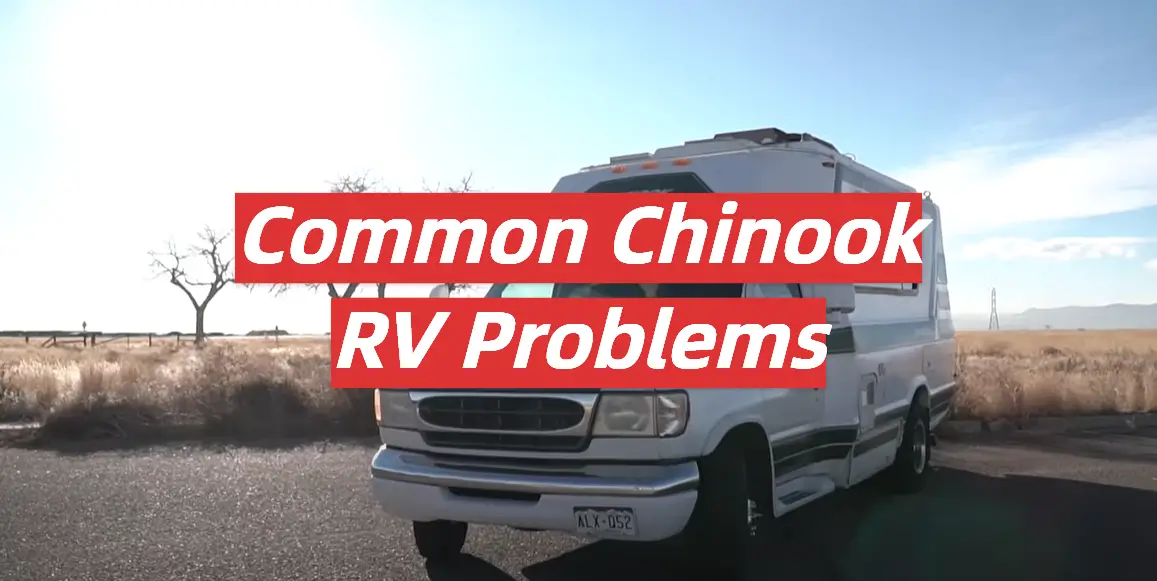
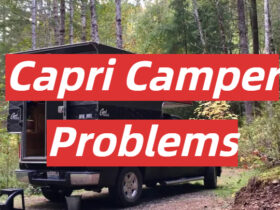
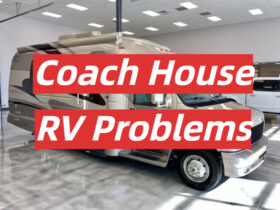
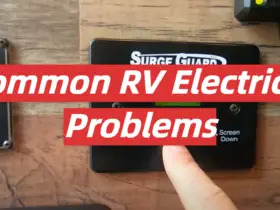
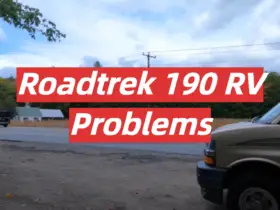
Leave a Reply